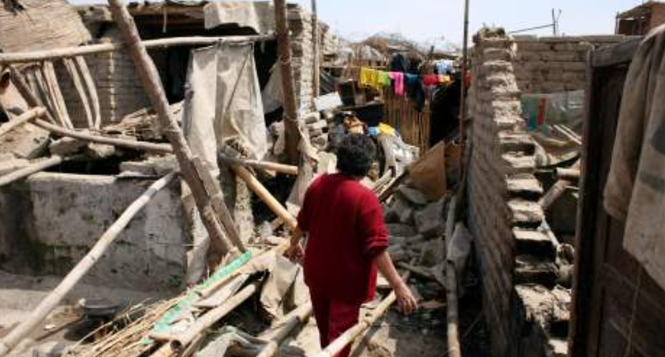
Two new reports examining the national laws and policies applicable to international disaster relief in Peru and Argentina were published this month by the IFRC’s Disaster Law Programme. The studies review and analyze the countries’ legal frameworks in light of the recommendations of the Guidelines for the domestic facilitation and regulation of international disaster relief and initial recovery assistance (the IDRL Guidelines). The reports identify strengths in the existing systems and present recommendations for more effective facilitation and regulation of international disaster assistance, such as with respect to the entry of international relief goods, equipment and personnel, and the coordination and quality oversight mechanisms.
In Peru, the study was conducted in collaboration with the Peruvian Red Cross and the National Institute of Civil Defence (INDECI). A working group consisting of government entities, UN agencies, and NGOs also participated in the project by sharing information on the implementation of laws applicable in the country following disasters.
Among the key recommendations are to strengthen the coordination mechanism for international humanitarian assistance lead by INDECI, and to develop protocols and procedures to facilitate international relief operations in the country. Additional recommendations include the exoneration of taxes and fees for humanitarian assistance, as well as the alleviation of administrative barriers delaying in the entry of humanitarian assistance.
Taking into account the recommendations of the IDRL Guidelines, Peru adopted Act 29664 on February 18, 2011, which creates the National System of Disaster Risk Management (SINAGERD). Subsequently, Article 61.4 of SINAGERD’s regulation adopted on May 26, 2011 “gives responsibility to the Governing Entity, the Presidency of the Council of Ministers, with the technical support from INDECI and the specialized international entities to elaborate a norm to facilitate humanitarian operations in Peru in accordance with International Disaster Response Laws, Rules and Regulations.” The Disaster Law Programme is currently in dialogue with the Peruvian Government to assist technically in the elaboration of a norm pertaining to IDRL.
In Argentina, the preliminary IDRL report was prepared in collaboration with the Argentinean Red Cross. It is based on the findings of an initial desk review and research project on the national legal framework applicable to international disaster relief operations. The analysis of existing legislation, doctrine and jurisprudence, together with preliminary recommendations, was presented to the government.
Considering the number of governmental stakeholders in disaster response in Argentina – across levels and departments – the recommendations include the creation of an inter-institutional coordination mechanism between Civil Protection and the Federal System of Emergency. Other recommendations include the establishment of terms and conditions for requesting and receiving international assistance in case of disasters that surpass the national response capacity.
The full versions of the reports are available here.